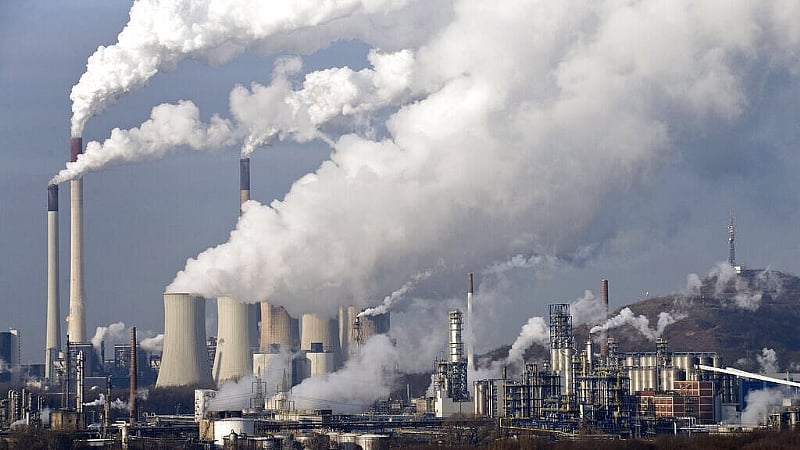The European Union has unveiled an ambitious 2040 climate target, aiming to reduce greenhouse gas emissions by 90% compared to 1990 levels. This legally binding commitment represents a significant stride towards the EU’s ultimate objective of achieving net-zero emissions by 2050, reinforcing the bloc’s position as a global leader in climate action. The announcement comes against a backdrop of escalating climate change impacts, including the recent heatwave sweeping across Europe, underscoring the urgency of addressing the climate crisis. However, the path to this ambitious target is paved with compromises designed to accommodate the diverse interests of member states, some of whom have expressed reservations about the pace and scale of the transition.
France has emerged as a key architect of the 2040 framework, collaborating closely with Brussels to navigate the complex political landscape. President Macron, while acknowledging the challenges of decarbonizing European industry, has advocated for robust EU-wide standards, particularly emphasizing the role of nuclear energy in the bloc’s clean energy future. French diplomacy was instrumental in advancing negotiations, ultimately leading to a balanced approach that seeks to protect European industry while upholding climate ambitions. The final proposal reflects this delicate equilibrium, incorporating safeguards designed to address the concerns of specific sectors crucial to the European economy.
A key point of contention revolves around the inclusion of international carbon credits as a means of achieving up to 3% of the emissions reduction target starting in 2036. This provision allows member states to invest in emissions-reducing projects in developing countries and count these offsets towards their national targets. While proponents argue this mechanism offers flexibility and cost-effectiveness, critics raise concerns about its potential to undermine the integrity of the target and divert investment away from Europe’s own green transition. Environmental groups and climate scientists have voiced strong opposition, questioning the effectiveness and verifiability of some international offset schemes. The Commission has pledged to implement strict criteria to ensure the quality of these credits, but skepticism persists regarding the practical implementation and enforcement of these safeguards.
The proposed 2040 target is not yet set in stone and faces several political hurdles before becoming law. EU environment ministers will commence discussions in mid-July, followed by a vote scheduled for September. The European Parliament must also give its approval before the target becomes legally binding. The Commission aims to finalize the package before the COP30 climate summit in November, viewing the 2040 target as a crucial stepping stone towards achieving the interim 2035 milestone required by the United Nations.
Political divisions remain a significant challenge. Several member states, including Italy, Hungary, and the Czech Republic, have expressed concerns about the economic burden of decarbonizing heavy industries, especially in the face of growing competition from the US and China. Italian Prime Minister Meloni has even suggested a lower target, arguing that excessive pressure on European industries could be counterproductive. Germany, on the other hand, has supported the inclusion of the 3% flexibility for international carbon credits, reflecting commitments made in its domestic coalition agreement. These diverging perspectives highlight the complex political landscape the EU must navigate to reach consensus on the 2040 target.
Despite these challenges, the announcement of the 2040 target sends a powerful message of the EU’s unwavering commitment to climate action. The Commission emphasizes that decarbonization is not merely an environmental necessity but a crucial driver of long-term economic resilience. The plan represents a delicate balancing act between ambition and pragmatism, unity and flexibility – a compromise that some view as essential and others as potentially jeopardizing the EU’s climate leadership. As Europe grapples with increasingly frequent and intense extreme weather events, driven by the fact that it is the world’s fastest-warming continent, the urgency of addressing climate change has never been more apparent. The 2040 target, with its inherent trade-offs, underscores the complex path ahead for Europe as it strives to balance its climate ambitions with the realities of a complex political and economic landscape. The coming months will be critical in determining whether the EU can successfully navigate these challenges and maintain its position at the forefront of global climate action.














